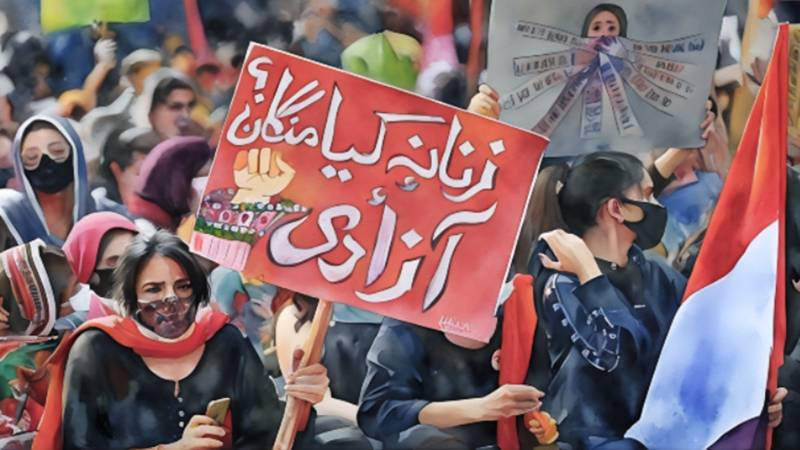
In Pakistan, women’s rights and safety have long been contentious topics, often caught in a tug of war between tradition, religion and modern societal expectations. While the country has seen remarkable women rise to positions of influence — from Benazir Bhutto, the first female prime minister of a Muslim-majority country, to Malala Yousafzai, a Nobel Laureate advocating for girls’ education — the everyday reality for many Pakistani women remains deeply troubling. Incidents of violence, harassment, and a lack of basic rights continue to pose significant challenges. It is clear that comprehensive structural changes are needed to protect and empower women across the country.
A persistent culture of violence
Violence against women remains one of Pakistan’s most critical and unresolved issues. The Human Rights Commission of Pakistan (HRCP) has frequently reported on domestic violence, honour killings, acid attacks, and other forms of gender-based violence that plague the country. According to the Pakistan Demographic and Health Survey, approximately 34% of married women have experienced physical violence in their lifetimes.
The judicial system is often bogged down by corruption, inefficiency, and a lack of gender-sensitive procedures, making it difficult for women to seek justice
One of the most horrific practices, honour killings, continues to claim hundreds of lives annually. Despite the introduction of laws meant to curtail these acts, societal and familial pressure often means that perpetrators go unpunished. In many cases, the act is seen as a matter of familial or tribal honour, overshadowing justice and human rights.
Furthermore, sexual harassment remains a widespread problem, particularly in workplaces and public spaces. Although Pakistan has enacted the Protection against Harassment of Women at the Workplace Act (2010), the cultural stigma around reporting harassment leaves many women reluctant to come forward. Fear of retaliation, damage to reputation, and the lack of accountability for perpetrators creates an environment where women are forced to tolerate abuse in silence.
The legal framework: inadequate and under-enforced
Pakistan’s legal framework is far from adequate when it comes to ensuring the rights and safety of women. While there are some protective laws on the books — such as the Anti-Rape Ordinance and the Prevention of Anti-Women Practices Act — enforcement remains weak. The judicial system is often bogged down by corruption, inefficiency, and a lack of gender-sensitive procedures, making it difficult for women to seek justice.
In rural areas, the situation is even more dire. Many women rely on informal systems of justice, such as jirgas and panchayats, where male-dominated councils pass rulings that often disregard women's rights. These local mechanisms, though illegal, continue to function in parallel to the formal justice system, perpetuating an imbalance of power and undermining the state’s authority.
Moreover, societal norms deeply rooted in patriarchy also affect how laws are enforced. Police forces are often reluctant to take cases involving women's rights seriously, viewing domestic or sexual violence as private family matters rather than criminal offenses. This lack of accountability has devastating consequences, not just for the victims but also for society as a whole.
Women's safety: a public concern
Women's safety in public spaces is a growing concern. In urban centres like Karachi, Lahore, and Islamabad, women report harassment and verbal abuse as part of their daily lives. Public transport systems, for instance, are notorious for being unsafe for women, leading to limited mobility for those who rely on these services for education and employment.
The Aurat March, which has gained traction in recent years, is a vivid example of how Pakistani women are demanding a safer, more inclusive society. This annual event, celebrated on International Women’s Day, provides a platform for women from diverse backgrounds to voice their frustrations and demand institutional reforms. However, the movement has been met with fierce opposition from conservative factions who accuse the marchers of promoting "Western" ideals that are incompatible with Islamic values.
Yet, the truth is that women's rights and safety are not a matter of East versus West or tradition versus modernity. They are fundamental human rights that every woman, regardless of background, deserves. It is imperative for the government and society at large to understand this distinction and work towards creating a more equitable environment for all.
Path to progress: education and social change
One of the most effective ways to ensure long-term improvements in women's rights and safety is through education. Promoting gender equality in schools, universities, and public forums can help shift the cultural attitudes that have long kept women marginalised. Education not only empowers women but also raises awareness among men and boys about the importance of respect, equality, and non-violence.
Additionally, the role of the media cannot be understated. Sensationalist coverage of women’s issues often perpetuates harmful stereotypes, while responsible journalism can raise awareness and hold institutions accountable. Television, radio, and social media platforms need to champion women's rights through consistent, thoughtful coverage that challenges the status quo.
Civil society, too, plays a crucial role. Women's rights organisations in Pakistan have been at the forefront of advocating for legal reforms, providing support to victims of violence, and raising awareness. Their efforts need to be supported, not hindered, by government policies and societal attitudes.
Pakistan stands at a crossroads when it comes to women's rights and safety. While there has been progress, the journey toward gender equality is far from over. It requires a concerted effort from the government, civil society, and individuals to challenge deep-seated cultural norms, strengthen legal frameworks, and create safer environments for women. Only then can Pakistan truly live up to its potential as a society that respects and upholds the rights of all its citizens, regardless of gender. By addressing these issues head-on, Pakistan can begin to pave the way for a more just and equitable future, where every woman feels safe, empowered, and respected.

